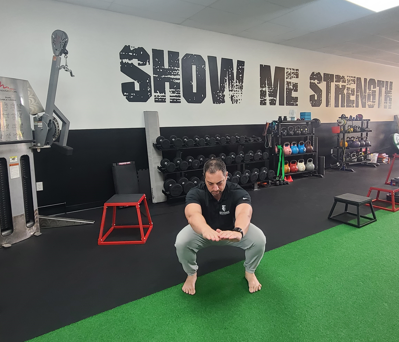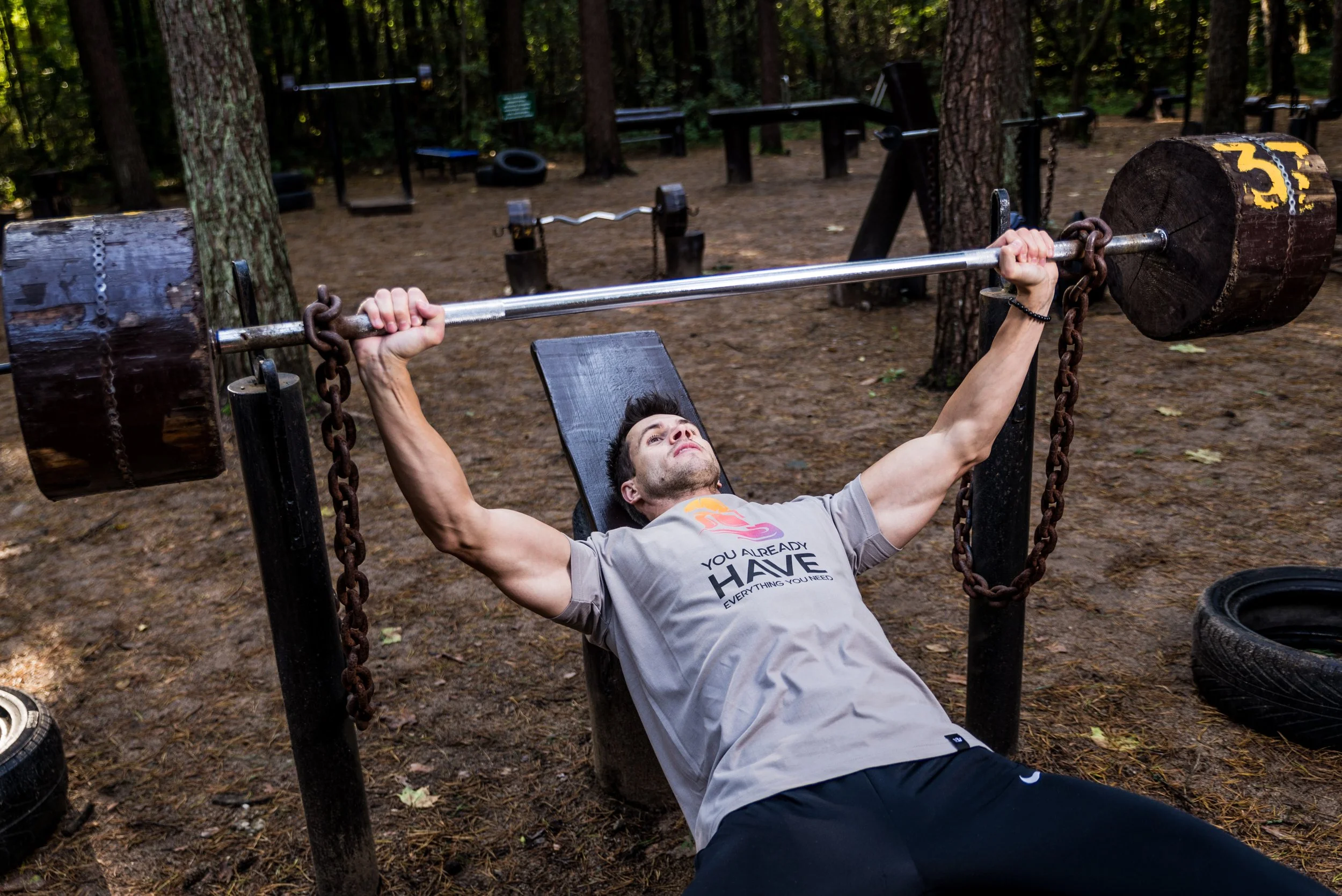The squat is a fundamental position that everyone should be able to perform. It’s arguably one of the most functional movements. The problem is, chairs have conditioned us to only have to squat to partial depth. I spent a few months in the Philippines and it was common to see older folks sitting in a deep squat to eat their lunch. If we all did this more often, we likely have healthy ankles, knees, and hips.
Read MoreIron deficiency is extremely common and can be one of the causes of anemia. However, too much iron can be a problem as well and is known as iron overload. Iron overload is associated with metabolic disorders, gout, cardiovascular disease, hormone problems, immune imbalances, and musculoskeletal disorders.
Read MoreStiffness in joints is usually a combination of stiff surrounding muscles and tendons, a stiff capsule, and swelling. There are two types of swelling, inside the joint and outside the joint. The swelling I’m talking about is inside the joint, and is technically called effusion.
Read MoreDo you have pain in the buttock/hip area while going for a long car ride? Or maybe it’s just sitting through a meal. While there may be a few causes of this, often we find there is irritation of the external rotators of the hip. If you look around the corner, you’ll probably find the real reason why.
Read MoreA common complaint we get is pain with any pressing motions, especially with a bench press. I’ve covered this topic in the past, as outlined in this blog here. The short of that one is that missing shoulder extension can lead to an overly anterior position of the shoulder and can provoke pain. This blog will cover a different mechanism; internal versus external rotation.
Read MoreIt’s all too common to hear something like “I overdid it, I need to rest it” for musculoskeletal injuries. It is widespread advice in the medical community, and I have a problem with it. It doesn’t work; well if you want to maintain a functional life.
Read MoreThe shoulder is inherently the most unstable joint in the body, well at least for the major joints. This is because you sacrifice stability for mobility. In other words, we have to do a lot of things with our shoulders like reach overhead and behind the back, feed ourselves, dress, groom, etc. If something is very stable, it doesn’t move much. The anatomy of the shoulder is such that it lends to much greater mobility, and much less stability.
Read MoreAs Pickleball has grown in popularity, one question that we get a lot is “what stretches should I do before I play”? The first thing we tell our athletes is “think active, not passive”.
Read MoreAnkylosing spondylitis is a chronic systemic inflammatory condition that primarily affects the spine and sometimes extends to other joints. It can lead to fusion of the vertebrae. It’s thought to be an autoimmune disease which means there may be dietary changes that can positively affect it. Because it is systemic, it can affect other parts of the body, such as the heart and lungs. It can even affect the uvea which is a layer of the eye. This can turn into uveitis which is pain and redness of the eye, and sometimes blurred vision.
Read MoreDe Quervain’s tenosynovitis is a painful condition that affects the wrist and thumb. It is classically considered an overuse injury and has many names such as gamer’s thumb, texting thumb, and mommy thumb. It has also been correlated with autoimmune diseases such as rheumatoid arthritis, so perhaps there is a nutritional component. Repetitive housework may contribute such as chopping vegetables, cleaning dishes, vacuuming, and gardening/weeding. It’s also suggested that use of a computer mouse, using a trackball, typing, golf, bowling, fly-fishing, sewing, and piano playing may be the cause.
Read MoreIodine Deficiency is an extremely common problem and the effects can be hidden. Iodine is an essential for life and is important for the synthesis of thyroid hormones. Deficiency can lead to hypothyroidism, goiters, and some lesser known problems. Some food sources can inhibit iodine absorption and are termed “goitrogenic”.
Read MoreFrozen shoulder (adhesive capsulitis) and Dupuytren’s contracture share a similar pathology. Inflammation leads to changes in the connective tissue and it ends up severely limiting range of motion. Is there a link between the two? Both have been associated with endocrine disorders such as Hashimoto’s thyroiditis and diabetes (Cakir et al., 2003).
Read MoreHockey goalies love getting their legs into awkward positions, and the RVH (reverse vertical horizontal) is no exception. The difficulty with the position is that it puts the hip into internal rotation, a motion that many athletes are lacking.
Read MoreAutoimmune disease is a condition where the body’s own immune system attacks its own tissues. The types of tissues that are attacked determines the type of autoimmune disease that develops. There are hundreds of versions of autoimmune disease including type 1 diabetes, rheumatoid arthritis, graves disease, hashimoto’s disease, lupus, multiple sclerosis, crohn’s disease, celiac disease, inflammatory bowel disease, psoriasis and the list goes on and on.
Read MoreHave low back pain when squatting? There can be several reasons for this, but the first thing I check is your ankles. Limited ankle range of motion can alter how you squat and change your center of gravity, placing more strain on your low back.
Read MoreIf you’ve seen marathon runners collapse, it’s because of hyponatremia. Hyponatremia is a state where the concentration of salt in the body is abnormally low. Most are familiar with dehydration and it’s likely more common, however hyponatremia is not talked about quite as much and can be deadly. As discussed in this article, it can cause confusion, nausea, headache, and swelling of the brain which can lead to death if severe enough. Another problem that it has been linked to is osteoporosis.
Read MoreI get a lot of questions about what to do before playing a sport. I rarely get asked about what to do afterwards, which is equally as important. We seem to have forgotten the recovery aspect of using the body. I guess this is not surprising as we are a culture of go, go, go. Coffee, workouts on lunch breaks, more coffee. Constant stimulus. Remember, the body is always seeking homeostasis (equilibrium). When it gets tipped off the scale too often, we get break down. This is where injury occurs. If you want to improve performance, you do want to apply the right amount of stimulus, but then you must allow for recovery to keep injury at bay and to excel. This is called the hormetic effect. So let’s dig into how to approach this.
Read MoreThere are a number of reasons why you may have difficulty achieving a deep squat. Usually it’s your ankles. If you feel like you are going to fall backwards during a squat, it’s your ankles. However, if you feel strain in your groin or inner thigh, it may be your adductors.
Do you get pain in the front of the shoulder with bench press or push ups? The front of the shoulder is a sensitive area and has a lot of nerves that pass through this area. If the head of your humerus presses forward into this bundle, it can cause some pretty nasty pain. What causes this to happen? Lack of shoulder extension.
Read MoreFor years, we’ve been told to avoid salt as it increases blood pressure. There is more to the story than that. After all, there is what is known as “salt sensitive hypertensives”. So why do some people seem to be sensitive to salt, and others are not? Whenever this pattern arises, there is some more digging to be done. Perhaps the link is sugar.
Read More



















